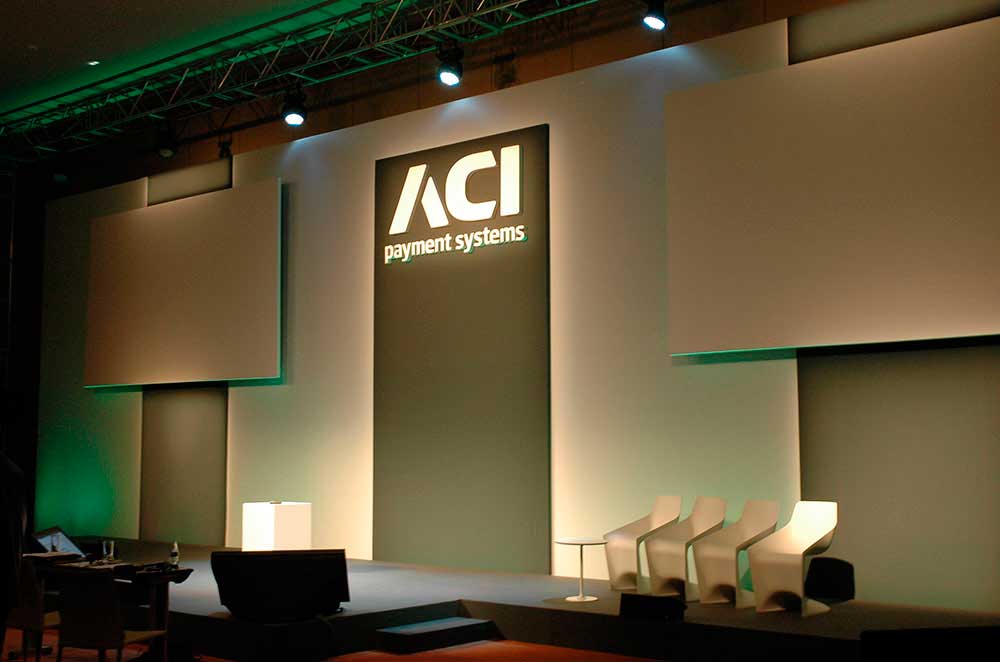There are many types of stages for events, all of them have the same purpose: to try to transmit the values of our brand in the best way, fulfilling the functionality for which they were designed. Each company and each show has different needs, therefore it is necessary to ask ourselves which type of event stage is the most suitable for us. These are the most common types of stages for events today: circular stages, stages with ramps, modular stages, revolving stages, back-lit stages and flamenco tableau.
Types of scenarios for events
Circular scenarios
The circular stages are perfect for conferences and meetings. Due to its shape, they can remind us a little of the circus or the coliseums of the Roman era. All the action takes place in the center by actors or speakers, allowing all spectators to have a clear view of what is happening at all times since the stands rise as they move away from the center of the stage.
Scenarios with a ramp
If you need to present a car or some type of heavy mobile machinery, stages with ramps are ideal for this type of presentation, facilitating their transport thanks to the installed ramps.
Modular scenarios
Modular stages can perfectly be the most versatile and practical, since they are composed of several pieces and can always be adapted to the needs of the place where the event is held, there is no setback that cannot be overcome with this type of stage.
Rotating scenarios
If you want to highlight the presentation of your star product or service and do it in the most spectacular way, revolving stages are a very valid option since they are not very frequent and always surprise the audience.
Backlit scenarios
For night events, one of the most colorful and light-filled options is the back-lit stage. They can be customized in every way you can imagine and the combinations of lights and colors are almost endless.
Flamenco tablao
The flamenco tablao is made by creating a special structure with acoustic materials. It’s designed to take advantage of this type of representation.
Do you know how to design your stage? Have you ever had to use any of these options? Tell us about it, we’ll love it!

